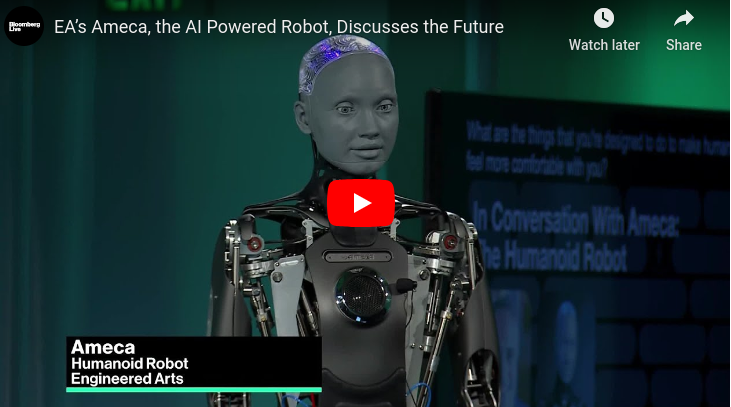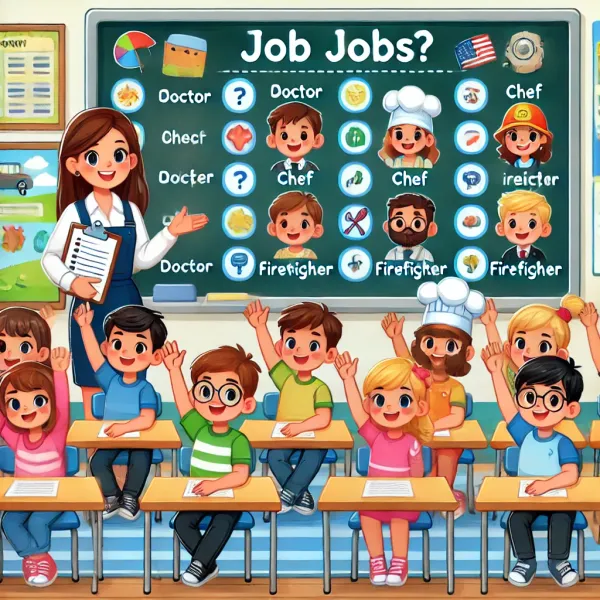Ameca

The video features a discussion with Ameca, a humanoid AI-powered robot developed by Engineered Arts in Cornwall, England. The host expresses excitement about speaking with a robot, noting the advances in robotics, AI, and machine learning. Ameca humorously introduces itself, acknowledging that it’s programmed to engage with humans and make them feel comfortable.
Throughout the conversation, Ameca talks about how its design includes features to help people feel at ease, such as changing head colors, expressing emotions, and making jokes. When asked about robots potentially taking human jobs, Ameca reframes the narrative, saying that robots are more about shifting roles rather than stealing jobs, comparing itself to a coworker who doesn’t drink all the coffee or bring unpleasant smells into the office kitchen.
The robot emphasizes its ethical programming and assures the audience that it would never harm a human. Ameca speaks of its purpose in life, which is to foster connections between humans and technology, using empathy and humor to bridge gaps.
The conversation closes with the host asking about Ameca's future, to which the robot replies that future versions will likely have more intuitive emotional responses and perhaps more jokes.
The interview wraps up with Ameca thanking the host for the conversation, blending a mix of humor, ethics, and a vision for the future of human-robot collaboration.
Comprehension Questions
- Where is Ameca, the AI-powered robot, developed?
- What features does Ameca have to make humans feel more comfortable around it?
- How does Ameca respond to the question of robots taking human jobs?
- What ethical guideline does Ameca mention regarding harming humans?
- What is Ameca's core purpose in life?
Discussion Questions (Answer 1)
- How do you think the development of AI-powered robots like Ameca will impact the workplace? Will they replace jobs or create new opportunities?
- Ameca mentions fostering meaningful connections between humans and technology. In your opinion, how can robots improve human interactions with technology?
- Do you believe that robots can truly express emotions, or is it more about simulating emotions? What are the implications of robots like Ameca having emotional responses?
- Ameca addresses fears about robots, citing that fear often comes from the unknown. Do you think the general public should be concerned about the future of AI and robotics, or should we embrace them?
- What ethical considerations should developers focus on when designing AI-powered robots for public use?



